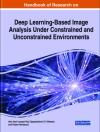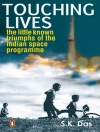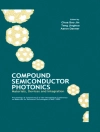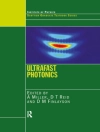This book covers remarkable contemporary nanomaterials such as carbon nanomaterials, nanoclays, quantum dots, MXene, and metal-organic frameworks. Each chapter discusses the synthesis techniques, characterization methods, properties, and the nanomaterials’ use in different aspects of biomedical, energy, polymers, material construction, biosensors, coatings, and catalysis. Moreover, commercialization challenges and environmental risks of nanomaterials are also covered in depth. The book provides an understanding of the fundamental properties, limitations and challenges in nanomaterials synthesis, serving as a valuable resource for researchers, graduate students, academicians, and consultants working with nanomaterials for engineering applications.
İçerik tablosu
Introduction: importance of nanomaterials in engineering application.- Carbon based nanomaterials.- Carbon nanomaterials in biomedical application.- Carbon nanomaterials in polymer.- Carbon nanomaterials in geomechanics application.- Carbon nanomaterials in Petroleum application.- Carbon nanomaterials in material construction.- Carbon nanomaterials in Biosensor application.- Carbon nanomaterials in coating application.- Perspective future development of carbon nanomaterials.
Yazar hakkında
Dr. Nabisab Mujawar Mubarak is an Associate Professor in the Faculty of Engineering and Science, Curtin University, Malaysia. He serves as a scientific reviewer in numerous journals in the area of Chemical Engineering and Nano Technology. In research, Dr. Mubarak has published more than 140 journal papers, 23 conference proceedings and authored 22 book chapters. His area of interest is carbon nanomaterials synthesis, magnetic biochar production using microwave and wastewater treatment using advanced materials. He is a recipient of the Curtin Malaysia Most Productive Research award, outstanding faculty of Chemical Engineering award, Best Scientific Research Award London and outstanding scientist in publication and citation by i- Proclaim, Malaysia. Dr. Mubarak is a Fellow Member of The Institution of Engineers Australia, Chartered Professional Engineer (CPEng) of The Institution of Engineers Australia and also a Chartered Chemical Engineer of the Institute of Chemical Engineering (IChem E) UK.
Dr. Mohammad Khalid is Professor and Head of Graphene & Advanced 2D Materials Research Group at Sunway University, Malaysia. His research interests have been focused on the synthesis of advanced 2D and hybrid nanomaterials for heat transfer and energy storage applications. He has authored more than 180 international publications in peer-reviewed journals. Dr. Khalid is also a Fellow of the Higher Education Academy (FHEA), UK.
Dr. Rashmi Walvekar is an Associate Professor in the School of Energy and Chemical Engineering, Xiamen University Malaysia Campus. Her research interests are in heat transfer enhancements, synthesis of nanomaterials, nanofluids, synthesis of green solvents, and solar energy harvesting and storage. She has published over 100 indexed publications, numerous conference proceedings and book chapters. She received several awards at national/international platforms. Most recently, she was awarded President Award for research and innovation and Vice-Chancellor most cited academic award. Dr. Rashmi is a Chartered Chemical Engineer of the Institute of Chemical Engineering (IChem E), UK and a registered graduate member of the Board of Engineers Malaysia.
Dr. Numan Arshid obtained his master’s degree in electrical engineering from COMSATS University Pakistan and Ph D degree with distinction from University Malaya, Malaysia. He worked as a research fellow at Sunway University, Selangor, Malaysia. Currently, he working as Post-doctoral Fellow at Fudan University Shanghai, China, under Fudan University Post-doctoral Program. His research work is focused on the development of 2D heterostructure nanomaterials for electrochemical energy storage and sensors. Dr. Numan has authored more than 60 scientific articles in international journals. He is also a member of the Institute of Physics (IOP) London.












